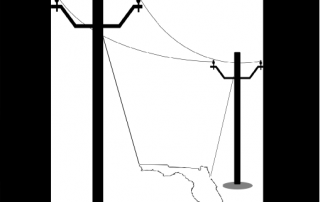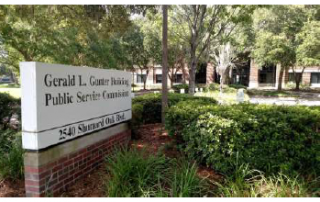Sustainability
It is important that Florida government agencies adopt policies and practices that protect our natural environment, human, and ecological health today and for future generations.
Sustainability in Florida can be divided into two categories. The Built Environment and the Natural Environment.
The first category is the Built Environment which is defined as the basic structure or system which is necessary for a state’s effective operation.
In a Built Environment there are two types of infrastructure.
The first type of built infrastructure includes a state’s public water systems. These water systems are also known as a state’s Blue Infrastructure.
The second type of built infrastructure includes a state’s buildings, roads, and other public urban or rural construction. These structures are also known as a state’s Grey Infrastructure.
The second category of sustainability is the Natural Environment.
The Natural Environment is defined as the natural landscapes or land where people, animals, and plants live. These natural landscapes are also known as Green Infrastructure. The Natural Environment can also include natural water resources like rivers, lakes, and springs.
Florida’s government and private land developers should carefully research the impacts that proposed Grey Infrastructure projects will have on existing and planned Green and Blue Infrastructure.
State of Florida Agency Responsible for Environmental Management and Protection
Florida Department of Environmental Protection
Website: https://floridadep.gov/
The Florida Department of Environmental Protection (DEP) is the state’s lead agency for environmental management and stewardship, protecting our air, water and land.
DEP offers three types of programs:
- Land and Recreation programs acquire and protect lands for preservation and recreation. This includes 175 state parks and trails and more than 12 million acres of public lands and 4 million acres of coastal uplands and submerged lands.
- Regulatory programs safeguard natural resources by overseeing permitting and compliance activities that protect air and water quality, and manage waste cleanups.
- Ecosystem Restoration programs protect and improve water quality and aquatic resources including America’s Everglades, Florida’s iconic springs and Florida’s world-renowned coastal resources. DEP works with communities, local governments and other agencies to protect and restore water quality and supply and to provide funding assistance for water restoration and infrastructure projects, as well as coordinates the protection of Florida’s submerged lands and coastal areas.
Federal Government Agency Responsible for Environmental Management and Protection
The United States Environmental Protection Agency (EPA)
The mission of the EPA is to protect human health and the environment.
Website: https://www.epa.gov/
Website Resources: Laws and Regulations, Environmental Topics, Whistleblower Legislation, and the Notification and Federal Employee Antidiscrimination and Retaliation Act of 2002 (No FEAR Act).
Link to EPA Laws & Regulations https://www.epa.gov/laws-regulations
Important EPA Environmental Topics
Research Publications
Power Play 2018: Political Influence of Florida’s Top Energy Corporations
May 2018
Executive Summary
In 2014, Integrity Florida released a report titled Power Play: Political Influence of Florida’s
Top Energy Corporations. The report examined the political influence of the state’s four largest
electric utility companies: Florida Power & Light (FPL), Duke Energy (formerly Progress
Energy), TECO Energy and Gulf […]
Florida’s “Public Service” Commission? A Captured Regulatory Agency
Download the full PDF report here
October 2017
Executive Summary
For most of its 130-year history, the agency now known as the Florida Public Service
Commission was a three-person body, elected in statewide elections. In 1978, with the intent of taking politics out of the Commission’s utility rate decisions, the legislature made […]
Power Play: Political Influence of Florida’s Top Energy Corporations
Download the full PDF report here
March 2014
Executive Summary
Increasingly, the Florida Legislature sets its agenda and policy outcomes based on the needs of
large political donors rather than the public interest. In one recent example, the sitting state
senate president openly explained his position on a public policy issue as supporting […]



